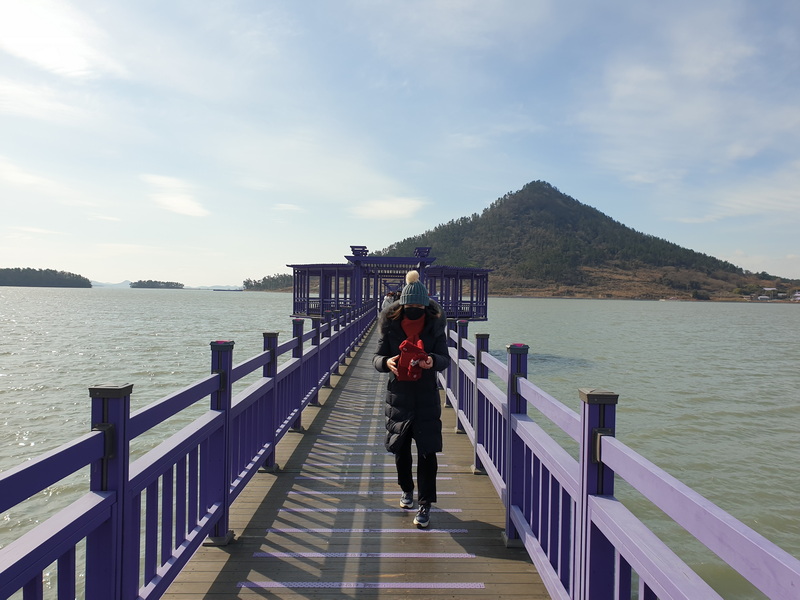The Purple Islands: Selfie Paradise
By William Urbanski
Ahhh, good old Shinan. Characterized by farmland, tidal flats, and all-around nice people, the 1,004 islands of the region are spread out, isolated, and beautiful. Compared to the big city livin’ of Gwangju, life in Shinan plays out at a slower pace, and while at first glance life out there may seem boring, “peaceful” is how it actually feels. When I first came to Korea all those years ago, it was on an island in Shinan where I made my home for four years: a time I look back on fondly.
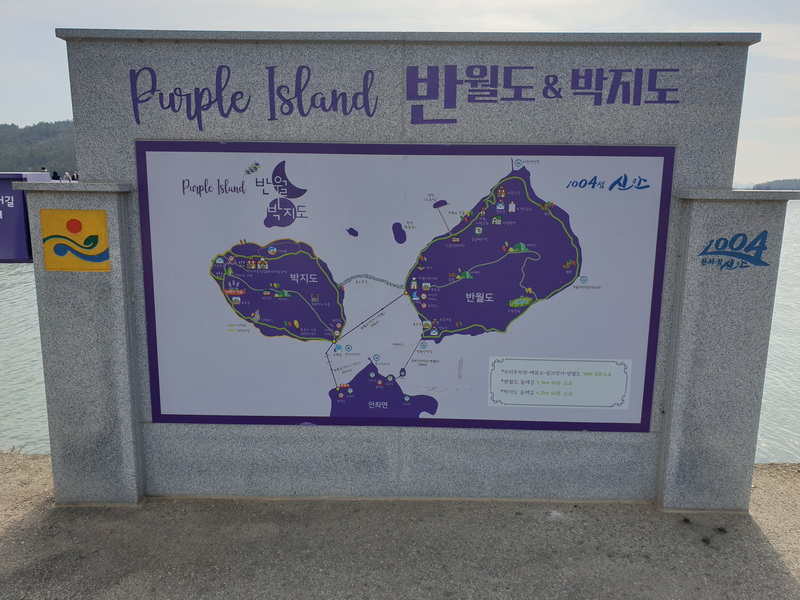
Shinan’s most well-known exports are salt and President Kim Dae-jung, but the region is also very well known for its beautiful beaches and numerous festivals. Imja-do’s annual Tulip Festival, for example, attracts a stunning number of visitors each year. In recent years, Shinan has been undergoing infrastructure upgrades, including a number of impressive bridges that have even become points of attraction in and of themselves. Since these bridges have greatly increased access to the area (in times past, much of the area could only be accessed by ferry), the next logical step was to find a way to attract even more visitors, and with the Purple Islands, Shinan hit it out of the park.
The Purple Islands of Banwol and Bakji (반월도와 박지도) are connected by three massive (and purple) walking bridges. Many of the residents jumped wholeheartedly onboard with this marketing initiative and even agreed to have their homes painted. In addition to the purple buildings, there are fields of purple lavender as well as….look, what I am trying to say is there is all sorts of purple things over there and it sounds weird but it is actually really cool and a lot of fun to check out! The Artist Formerly Known as Prince is looking down on Shinan from heaven and smiling.
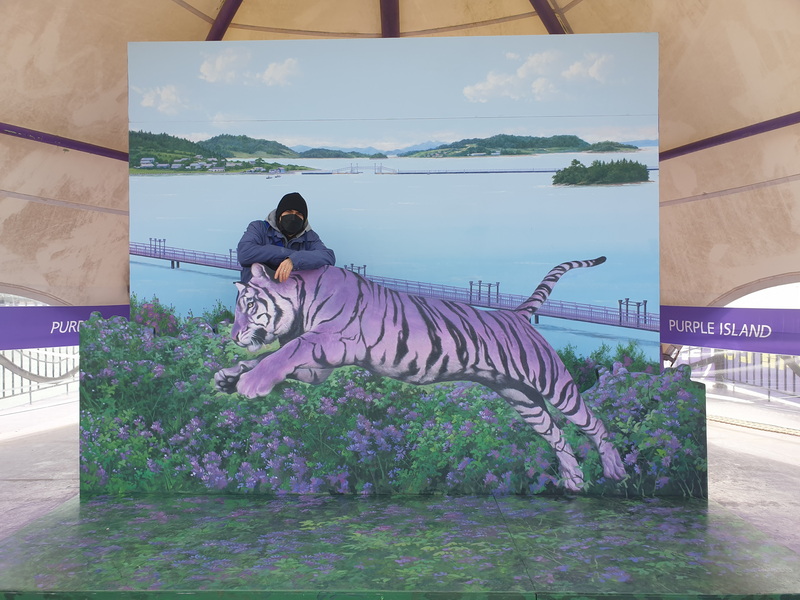
Getting There
While in theory it is possible to take a bus to Banwol and Bakji, I strongly recommend driving. By car from Gwangju, about sixty percent of the drive was easy-going highways, but once you get into the island region itself, the roads get fairly narrow and a bit tougher to navigate. This is not a big deal but something to think about, especially if you decide to visit on a Saturday or Sunday when there could be a lot of traffic. From the city, it takes about two hours to get there, and when we arrived it was pretty easy to park.
On the way there, there is a really cool mural beside the highway that has become a bit of a tourist attraction. The mural, which is painted on the outside wall of a private house, features lifelike countenances of the older couple that lives there. Trees behind the wall give the older couple the appearance of having, well, tree branches for hair. It sounds silly but the effect is neat and worth checking out since it is on the way.
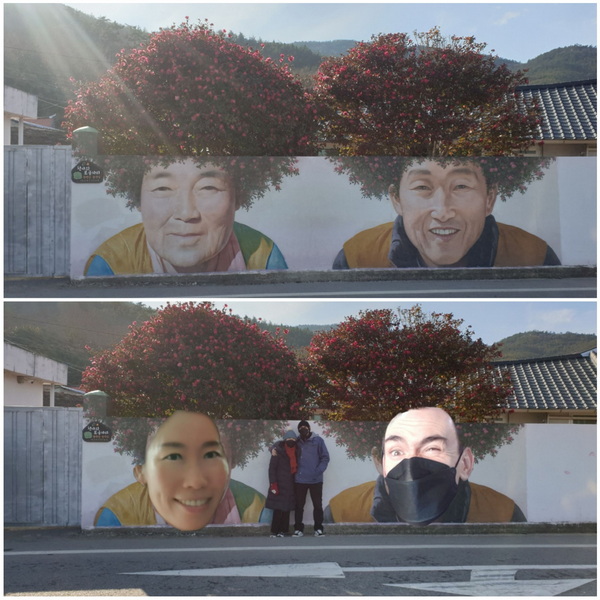
Be extremely careful when you try to snap a couple of pics, though. The mural is located right beside a busy highway with basically no safety guards in place for those who risk running onto the road to get a good vantage point. Believe me when I say it is a deathtrap, so watch out. In the roughly ten minutes my wife and I stopped there, I saw at least three children run out onto the road, throwing their parents into a panic.
Admission
If you are wearing a purple article of clothing, your five-thousand won entrance fee will be waved. Much to my consternation and chagrin, I learned only too late that purple socks do not meet the stringent purple clothing criteria and ended up having to shell out five bucks. This was the only time in my life I wish I owned a purple T-shirt, but the knowledge that my money was supporting Shinan made me feel better.
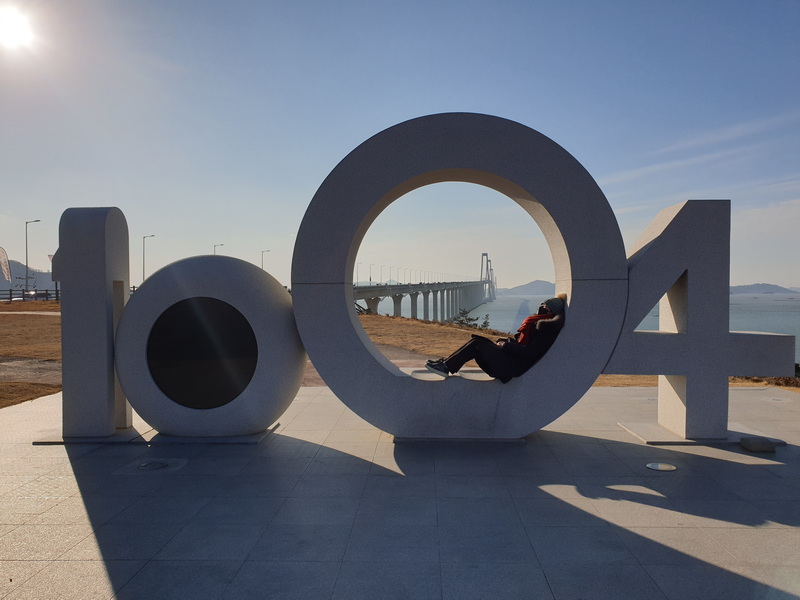
There are three major bridges (which cost an estimated four billion won to construct) that connect Banwol to Bakji to each other and to the mainland. Once you step out onto them, you had better get your selfie stick ready because they are something to behold. In my opinion, Shinan did an excellent job of creating an attraction that highlights the natural beauty of the area while also making something truly unique.
Walking at a leisurely pace (while stopping for gratuitous selfies) it took about two hours to cross all of the bridges and come back to the parking lot. The day we went, it happened to be particularly chilly (Shinan also tends to be pretty windy), so we did not really look around the islands that much. If you felt so inclined, you could easily make a full day of it.
Something that I really liked was that there were minimal cars on the islands, so it is actually quite a relaxing place to stroll around. We saw plenty of signs for restaurants on the islands, but they were located a little bit away from the bridges, so we ended up just having some food on the way back to Gwangju. Something to be aware of is that if you plan to just walk around the bridges then leave, there are not really that many restaurants right along the main walking course.

The Angel Bridge
To access the Purple Islands, you will have to traverse the magnificent and recently completed Angel Bridge. I suggest stopping for a few minutes at the rest stop at the east side of the bridge to take a few pictures and appreciate how massive of an undertaking it was. It may sound cheesy, but I think massive (and expensive) projects like these show that Korea as a whole really values Shinan and the people who live there.
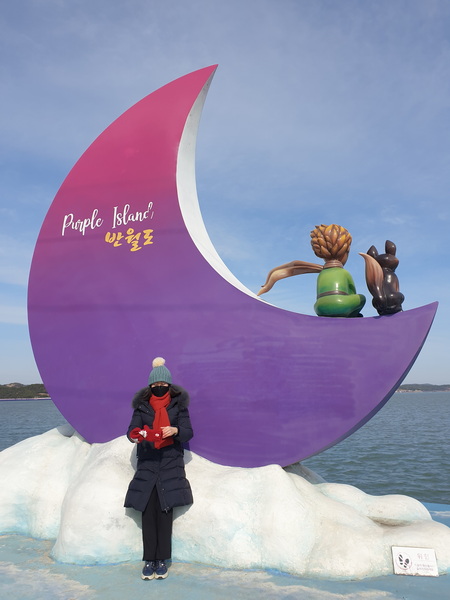
You Can Never Go Home
In the years that I lived there, something that really stood out to me about Shinan is how rapidly it was changing. There were always new roads, new buildings and new businesses popping up. Hopefully as these infrastructure upgrades continue, the region will become even more popular both to visit and to live in.
While I love Korea, I cannot help but feel there is too much importance attached to city life, which makes people underappreciate the beauty of the sparsely populated coastal regions. For what it is worth, I think life out in Shinan can help people develop a certain grizzled toughness as well as an appreciation for the simpler things in life: qualities that everyone would be better off embracing.
Stay purple, friends.
The Author
William Urbanski is the managing editor of the Gwangju News. While he lives in Gwangju now, he considers a certain island in Shinan to be his Korean hometown. Instagram: @will_il_gatto.





